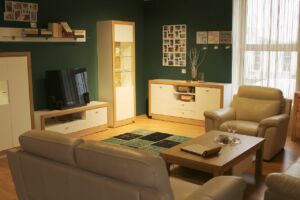News
Danish hotels don’t feel threatened by Airbnb
This article is more than 10 years old.
The online rental platform has attracted new tourists to the country and ‘made the pie bigger’ for everyone, says an expert

Some tourists prefer hotels, some would rather stay at a private apartment (photo: Pixabay)
Despite the rise in popularity of lodging portals such as Airbnb, Roomorama and HomeAway, two of Denmark’s largest hotel associations, Horesta and Dansk Erhverv, welcome the competition.
“A site like Airbnb allows Denmark to attract tourists who otherwise would not have come,” Christoffer Susé, the relationship manager at Horesta, told Computerworld.
“Airbnb is contributing to making the pie bigger for everyone in the tourism industry.”
Catering to different type of customers
According to Susé, more tourists visit the country because, in general, people travel more than they used to and many have different preferences for where to stay.
“When you are on a business trip, you might want a four-star hotel where cleaning and breakfasts are taken care of,” noted Susé.
“When travelling privately, you may have a preference to rent a more authentic apartment or cottage from a private landlord.”
Hotel capacities to increase
In 2013, it was reported that the number of sold rooms had increased by 13.1 percent since Airbnb entered the Danish market in 2008.
According to Horesta, hotel capacities are expected to increase by 22.2 percent by 2016 – compared to 2008.
“We have no figures to see whether the Danish hotel industry loses guests to Airbnb and other rental companies. However, the number of overnights in Copenhagen, for instance, beats all records,” explained Susé.
Should be taxed as hotels
Since launching, Airbnb has expanded tremendously and reached a market value of 133 billion kroner, with millions of customers and landlords using the online rental portal.
Whether the company steals customers from Danish hotels or not, Dansk Erhverv (Danish Business) wants all lodging portals to be taxed in the same way as hotels or Danish citizens who rent out their residences, for instance, to students.
READ MORE: Renting private homes to tourists could be illegal
In cities like New York and Barcelona, the authorities have been taking action against individuals and shady rental companies who cheat on taxes.










































